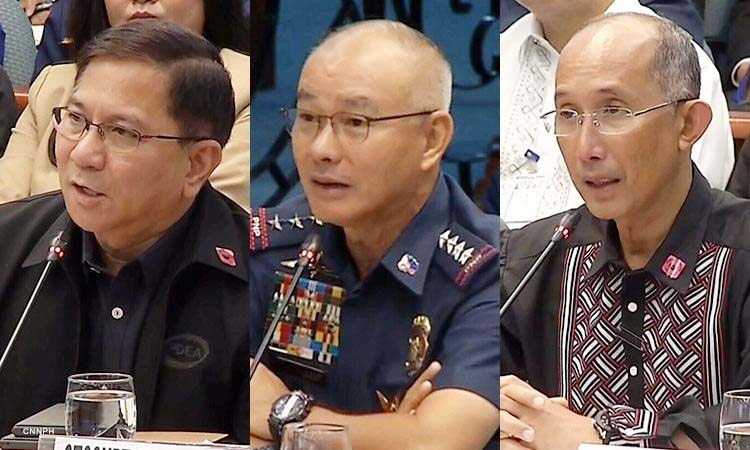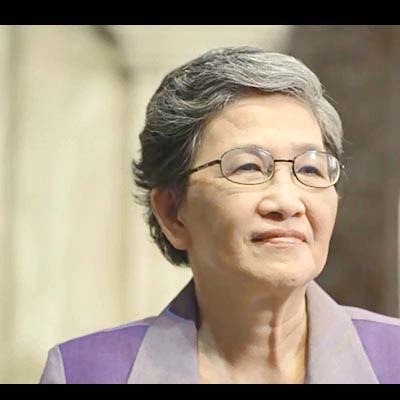“Ninja cops” currently hog the headlines, but they are not new creatures in a dysfunctional police force.
I first heard about them in the mid-1990s. Members of the Manila Police Department would kidnap Tsinoys and bring them to police stations, which they described as “safe houses,” to demand ransom from the victims’ families.
One victim was an old man with a small bicycle business on Blumentritt Street. Policemen detained him on the pretext that his bicycles were smuggled. A “ransom” was negotiated with his Filipina wife.
There were many other subsequent cases. In a subdivision in the Tayuman area, at least six people were victims of policemen’s “kidnap-extortion” modus.
Such cases occurred over many years, and we periodically heard about police involvement in various “moneymaking” ventures. Those involved invariably began to be tagged as “ninja cops.”
Another case I recall was an 18-year-old girl arrested in the mid-2000s for allegedly transporting a kilo of shabu. Policemen pounced on her as she exited a bank. The case was dismissed because the restaurant where she worked and the bank where she deposited money that morning attested that she left without carrying any packages.
The girl claimed that police were extorting P1 million from her. A high-ranking police official, however, told me that she was indeed a drug courier. Although extortion was the purpose of the arrest, police do not just randomly target anyone.
Whenever the community makes noise, especially anticrime nongovernment organizations such as us at the Movement of Restoration of Peace and Order (MRPO), as well as the Citizens Action Against Crime (CAAC), the institution cracks down on these rogue policemen.
I would like to believe that rogue policemen constitute only a small proportion of the 190,000-strong police force. But, as they say, a tiny drop of ink can destroy an entire canvas.
Tokhang-ransom
When President Duterte launched his war on drugs in 2016, “ninja cops” came back with a vengeance. Toward the end of 2016 to early 2017, we witnessed successive “tokhang-ransom” cases. Tokhang, coined from the words tuktok (to knock) and hangyo (to request). refers to police operations where policemen were supposed to knock on doors and convince known drug addicts or pushers to surrender.
But “ninja cops” used the campaign as an excuse to raid houses or business establishments and arrest or “invite” owners to police stations where the latter would be threatened with drug cases unless they paid a “ransom.”
The MRPO was among the first to report these cases to then Philippine National Police chief Reynaldo “Bato” dela Rosa and then National Capital Region Police Office chief and now disgraced ex-PNP chief Oscar Albayalde. All the reported cases happened in Manila, and those involved were from the Manila Police Department.
One case the MRPO reported to Albayalde and then MPD chief Joel Napoleon “Jiggs” Coronel is a police raid on a hotel in Binondo. Arrested was a businessman who arrived from China the night before. However, the police report stated they had him under surveillance for several days before his arrest. The police report also postdated the arrest, making it appear it happened two days after the businessman arrived. The MRPO requested Coronel and Albayalde to obtain footage from closed-circuit television to identify the cops involved in the raid.
The businessman’s uncle paid P1 million for his release inside the men’s comfort room in a large shopping mall in Binondo. The MRPO requested the mall to keep the CCTV recording that day as evidence of the payoff. The policeman who accepted the ransom was the head of a Binondo police precinct.
Our reports apparently fell on deaf ears. None of the policemen involved were punished; they were just reassigned somewhere else.
Another notable case is the killing in 2016 of Korean businessman Jee Ick-joo, who was believed to have been strangled inside the police headquarters at Camp Crame, Quezon City. Fortunately, Jee’s wife, Choi Gyung Jin, reported what really happened after his supposed arrest and subsequent death at the hands of police, because they could not afford to pay the ransom demanded. Her testimony of his kidnapping and murder brought to light the extent of the police’s nefarious activities.
The incident was an embarrassment to Duterte, who pledged to rid the police of corruption. According to a media report, during a meeting in Seoul in 2018, South Korean President Moon Jae-in brought up Jee’s case, to which Duterte reportedly said he was ashamed.
In another high-profile case, Kian Loyd delos Santos, a 17-year-old student, was shot and killed by police in an anti-drug operation in Caloocan City. While police reported that the shooting happened in retaliation during an encounter, witnesses said Delos Santos was dragged into an alley and shot while begging to be released because he still had an exam the following day.
Three police officers were subsequently prosecuted and found guilty of murder.

(Photo: https://cnnphilippines.com)
Senate probe
Fast forward to 2019. The Senate investigation on “ninja cops” has been hogging the headlines for the past two weeks.
As we close this issue of Tulay, Albayalde went on “non-duty status” until his retirement on Nov. 8 amid a relentless probe on his involvement in protecting police officers accused of recycling drugs and freeing a known drug lord.
Today’s “ninja cops” are policemen or agents of the Philippine Drug Enforcement Agency who recycle illegal drugs confiscated during anti-drug operations. They operate not only in Metro Manila but also in other parts of the country.
These policemen either plant seized illegal drugs on their victims in other operations as “evidence,” or sell them to other drug dealers or users.
Benjamin Magalong, former Criminal and Investigation and Detection Group head and now Baguio City mayor, and PDEA chief Aaron Aquino testified before the Senate and implicated Albayalde in protecting cops who profited over half a billion pesos from returning 68 kilos of illegal drugs to the streets by preventing their dismissal. These cops also earned an additional P50 million by freeing a drug lord caught with drugs worth P168 million.
Aquino earlier exposed the disappearance of several billion pesos worth of shabu smuggled out of the Bureau of Customs’ bonded warehouses in magnetic lifters. As well as the customs officials responsible for the release of the drugs, none of the rogue cops involved in recycling drugs were arrested or jailed.
It is quite apparent that in this never-ending drug war, cops have become the new drug dealers. It is not surprising they continue to raid more and more narcotics factories.
After the frenzy of the Senate investigation, will the media’s attention and agitation over “ninja cops” amount to anything? Or will the latest controversy, like earlier cases such as the killings of Jee and Delos Santos, be forgotten after it disappears from the headlines?
Since 1993, when the MRPO and the CAAC were organized, we have witnessed a continuous uphill struggle for police reforms.
Much has been accomplished, but the reforms of the past few years have been forgotten. Some police officers continue to earn lucrative profits from illegal activities rather than prevent crime.
